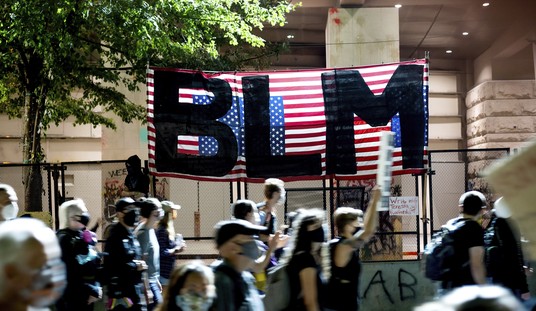All of these baseless, evidence-free accusations from Harry Reid against Mitt Romney over his income reminded me of something — Reid has a lot of unanswered questions about his own income, questions that the LA Times and others have been asking for years. In 2006 and 2007, a number of questions arose about Reid’s wealth in real estate, his ties to contributors, and his involvement in legislation that benefited all of the above. At that time, I blogged at Captain’s Quarters and wrote quite a bit about the probes into Reid’s finances, which have mainly drifted out of memory. As long as Reid wants to talk about income and wealth, though, why not revisit these posts?
I’ll start today by reposting one from the CapQ archives. This one comes from January 29, 2007, and serves as a pretty good launching pad for more to follow.
The Los Angeles Times continues its in-depth look at the remarkable finances of Harry Reid, who came into politics a humble man and who apparently intends on leaving it a land baron. The LAT reports on a transaction that gave Reid a 160-acre parcel of land at one-tenth its value, which coincidentally came from a lubricants distributor who shortly afterwards became the intended beneficiary of a Harry Reid-sponsored piece of legislation (via Hang Right Politics):
It’s hard to buy undeveloped land in booming northern Arizona for $166 an acre. But now-Senate Majority Leader Harry Reid effectively did just that when a longtime friend decided to sell property owned by the employee pension fund that he controlled.In 2002, Reid (D-Nev.) paid $10,000 to a pension fund controlled by Clair Haycock, a Las Vegas lubricants distributor and his friend for 50 years. The payment gave the senator full control of a 160-acre parcel in Bullhead City that Reid and the pension fund had jointly owned. Reid’s price for the equivalent of 60 acres of undeveloped desert was less than one-tenth of the value the assessor placed on it at the time.
Six months after the deal closed, Reid introduced legislation to address the plight of lubricants dealers who had their supplies disrupted by the decisions of big oil companies. It was an issue the Haycock family had brought to Reid’s attention in 1994, according to a source familiar with the events.
If Reid were to sell the property for any of the various estimates of its value, his gain on the $10,000 investment could range from $50,000 to $290,000.
It is a potential violation of congressional ethics standards for a member to accept anything of value — including a real estate discount — from a person with interests before Congress.
The bill that Reid proposed never passed, but the land passed to Reid nevertheless. It would have imposed government restrictions on interruptions of supply from oil suppliers to lubricant distributors, a common problem faced by people like Haycock. Although his repeated attempts to pass the legislation never succeeded, Reid’s efforts made it clear to the suppliers that Congress had, in the words of LAT reporters Chuck Neubauer and Tom Hamburger, taken an interest in supply interruptions — a message that certainly seems intended to intimidate Haycock’s suppliers.
In 1982, Haycock and Reid purchased the land in a partnership in which Reid owned a five-eighths share. Haycock spent $1500 an acre for his share of the land. In 1987, Haycock used his portion of the land as a contribution to his employee pension fund. A few years later, a California group bought the entire 160 acres from Reid and Haycock for over $1.3 million, which amounted to $8400 an acre — a fabulous return on investment over the 10 years that Reid and Haycock held the land. Unfortunately, the California investors ended up defaulting on the sale, and it reverted back to Reid and Haycock.
In 2001, Haycock’s firm began liquidating assets of the pension fund, and Haycock found he could not buy it himself. Instead, he offered it to Reid — for a price that amounted to one-tenth the value of the original purchase, and one-fortieth of the price the parcel fetched on the market ten years earlier.
Reid and his apologists point out that the parcel has topographical challenges, and that a minority share would have been difficult to sell to anyone but the majority partner. However, the LAT researched adjacent parcels and discovered that they commanded a price far above Reid’s eventual purchase price — over $4,000 an acre. Minority sales generally get discounted at around 20%, not 98%, even in the Mojave Desert.
This isn’t the first time we’ve seen shady land deals involving Harry Reid. He also had the singular achievement of getting paid over a million dollars on land for which he never disclosed his ownership, a story the LAT reported in October of last year. Reid stopped talking about the “culture of corruption” during the final weeks of the midterms last year — probably because it hit too close to home.
This deal certainly has the appearance of a slimy quid pro quo. Will the reformist zealotry of the Democratic majority be brought to bear on Reid? Don’t count on it.
The LA Times links are dead, thanks to the passage of time. A Nexis search confirms that the article ran on January 28, 2007 (the Sunday edition articles get released on the Internet early), written by Chuck Neubauer and Tom Hamburger, titled “A Deal in the Desert for Senator Reid?” The article also includes this interesting portion, emphasis mine:
How good a deal did Reid get? Paying $166 an acre for Mohave County land is “a super deal,” said the county assessor, Ron Nicholson. But the precise answer in this case, Nicholson said, is complicated by the fact that only a minority portion of a partnership was for sale; minority shares can be difficult to sell. Other experts who reviewed the transaction for The Times acknowledged the complexity of the deal but said the senator appeared to have acquired valuable property for a fraction of its value.
“The price strikes me as low,” said professor Crocker H. Liu, McCord chair of real estate at Arizona State University’s W.P. Carey School of Business. “But I don’t know what other considerations — valuable or otherwise — were part of this transaction. Usually when a purchase price is that low, there is other juice in the deal.”
We’ll have more from the CapQ archives for as long as Reid wants to make income and wealth an issue in this campaign. And don’t forget, Reid won’t release his own tax returns from this period, either.
Update: Thanks to Twitter follower MikeNYC, I’ve updated the post to have a working link to the LA Times article.







Join the conversation as a VIP Member